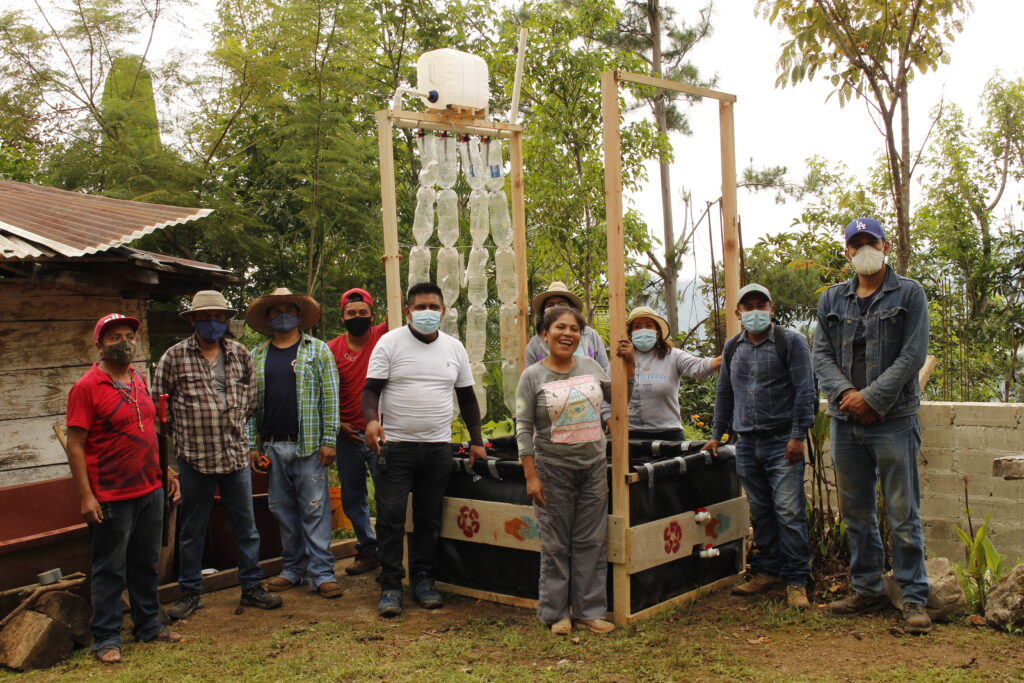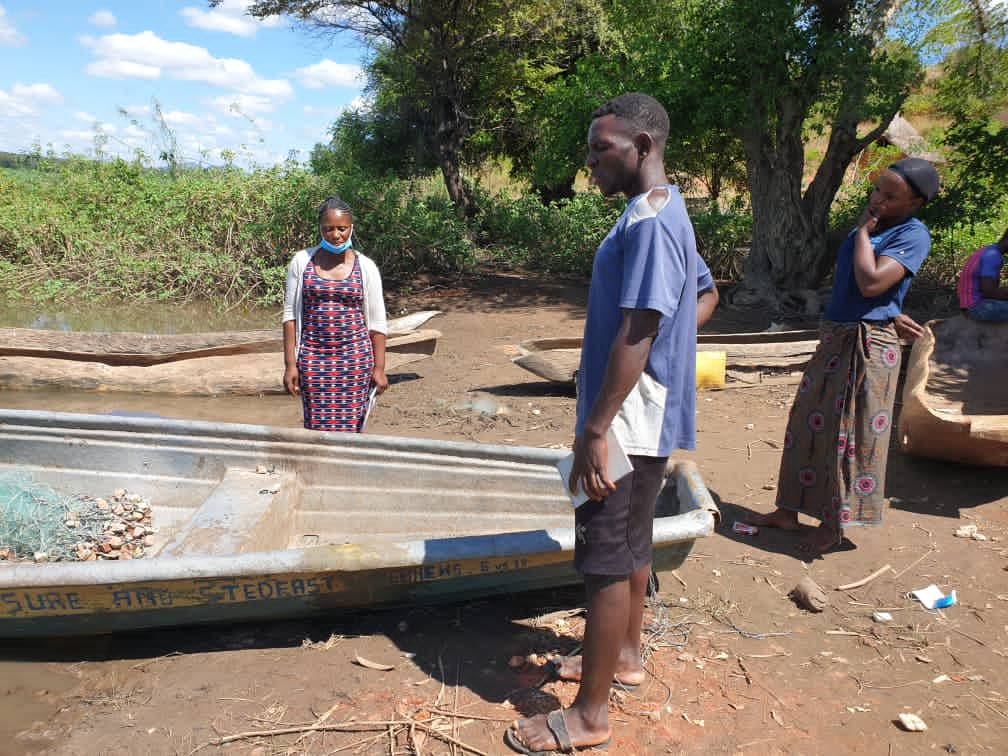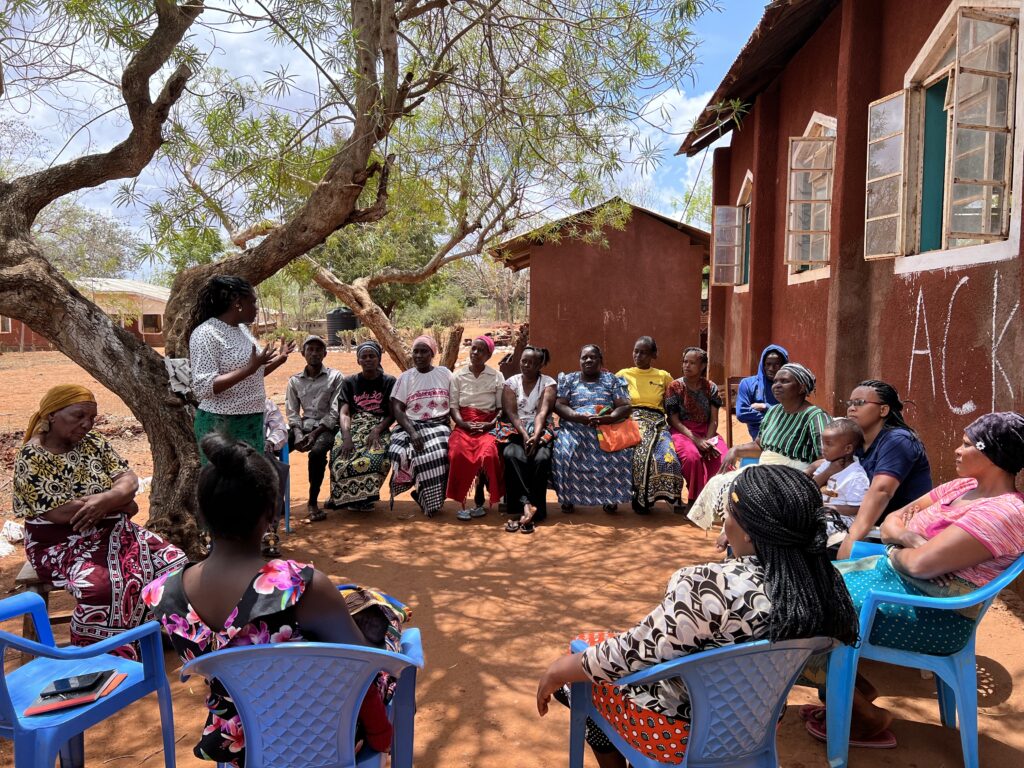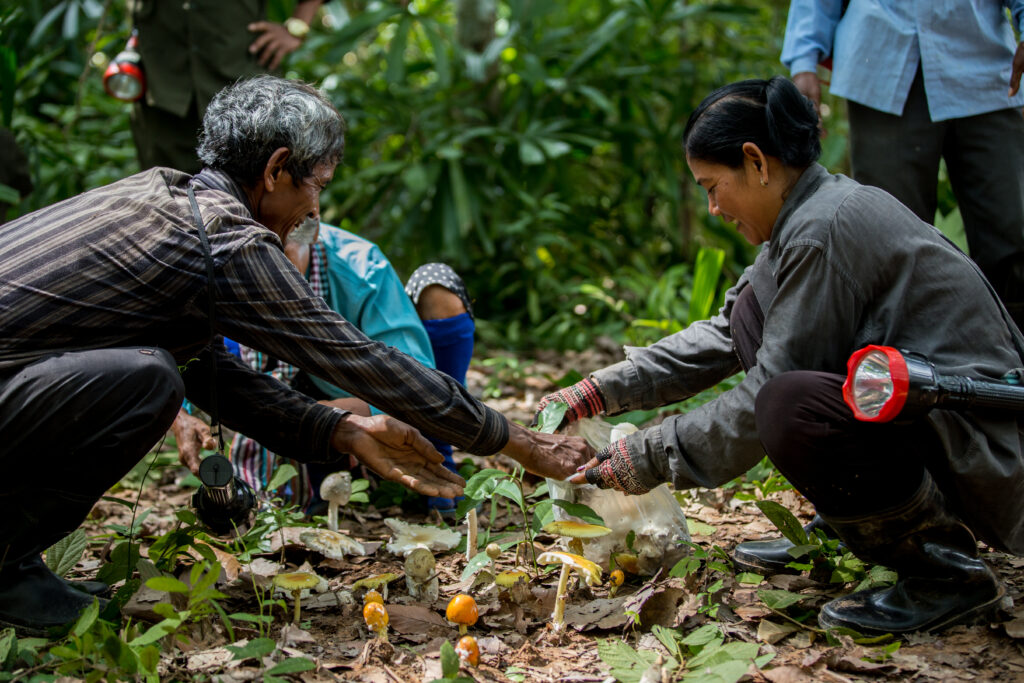The RISE grants challenge: 5 projects standing up for safety, equality, and justice for all
As International Union for Conservation of Nature (IUCN), Norwegian Agency for Development Cooperation (Norad), and the United States Agency for International Development (USAID) are set to announce the winners of the 2023 Resilient, Inclusive, and Sustainable Environments (RISE) grants challenge, we take a look back at the transformative work of last year’s winners.
By Climate Champions | April 24, 2024
The RISE grants challenge is an initiative that focuses on addressing gender-based violence within the context of environmental conservation, the sustainable use of resources in climate-vulnerable settings, and the safeguarding of Indigenous women’s environmental human rights.
Each year, up to five projects are awarded, spanning across Central America, Eastern and Southern Africa, and Southeast Asia. The scope of the work is emblematic of a broader, essential paradigm: the inclusion, support, and empowerment of diverse groups including women, civil society, youth, Indigenous peoples, individuals with disabilities, and marginalized communities.
Such inclusivity is pivotal for crafting a just and effective global strategy to confront the multifaceted challenges of our time – ranging from climate change and poverty eradication to food security, social and racial justice, and gender equality. This approach not only enriches the climate movement’s diversity of work but also amplifies its impact, pushing for meaningful political leadership, legislation, and systemic transformation towards a resilient, 1.5°C-aligned world.
The Climate Champions team, committed to a multi-stakeholder approach, actively facilitates intersectional and intergenerational civil society engagement across its activities, striving for a diverse and inclusive climate action landscape.
This commitment ensures that the voices and participation of youth, women, Indigenous people, and civil society, especially from the Global South, are not only heard but are central to the climate narrative and action plans.
The following project summaries offer a glimpse into how the RISE grants are being implemented on the ground to tackle gender-based violence (GBV), empower communities, and promote sustainable environmental management practices, all while addressing the urgent need for climate resilience and gender equality.
Prevention and mitigation of gender-based violence in the conservation, sustainable management and governance of coastal tourism landscapes in Mexico
In Mexico’s coastal communities, sustainable tourism is paramount for livelihoods. However, ecotourism landscapes remain under stress due to competing land use activities, contamination of water resources, and climate change – which have contributed to increases in social tensions and marginalization that exacerbate physical and sexual violence at the family and community levels. In addition, sexual harassment in tourism workplaces harm women in the sector and disincentivizes their participation.
In Mexico, Espacio de Encuentro de las Culturas Originarias, A.C. (EECO) is partnering with World Wildlife Fund (WWF) Mexico under the RISE grants challenge to address the prevalence of gender-based violence (GBV) across two tourism landscapes with three protected areas in the Yucatán Peninsula and Oaxaca.
Together, partners are engaging local communities to integrate gender perspectives and GBV risks within regulatory instruments and promote the economic empowerment of women as GBV prevention and mitigation strategies in ecotourism.

Working with local communities. Image: EECO.
Preventing and mitigating gender-based violence to improve access, benefits and control of fisheries resources in Zambia
Around the globe, fish harvesters are predominantly men, leaving women unseen throughout the sector. However, women represent approximately 90% of the global fisheries post-harvest roles, often acting as the first-buyers at landing sites who then process and market the fish. However, their invisibility and dependency on fish resources has led to the exploitation of women through “sex-for-fish” practices.
In Zambia, climate change impacts on the fisheries sector further worsen conditions. Through the RISE grants challenge, ActionAid Zambia and their implementing partner Young Women’s Christian Association (YWCA) have so far empowered 3,783 community members (1,994 women, 1,789 men) through training and awareness-raising initiatives, fostering knowledge and action on preventing and mitigating the risks of GBV, including sex-for-fish practices impacting women’s safety in the fisheries sector.
According to Samantha Munag’andu, RISE Program Coordinator at ActionAid Zambia, “Through targeted initiatives, such as women’s leadership empowerment, community-tailored gender training workshops, outreach programs, and engagement of men, we’ve observed a tangible improvement in local awareness and understanding of environmental issues and their close linkages to gender inclusion.”
“Throughout our project, we’ve learned valuable lessons that are applicable globally. Key among these is the necessity of cultivating strong partnerships with diverse stakeholders, including local communities, governmental agencies, and NGOs. Establishing trust with Indigenous or traditional leadership and engaging influential males within these structures has been vital in navigating sensitive socio-cultural challenges and effecting positive change in gender social norms. Additionally, embracing adaptive management strategies has enabled us to address evolving environmental gender-related, and socio-economic dynamics,” she adds.

Working with fisheries communities in Zambia. Image: ActionAid.
Empowering Indigenous women environmental human rights defenders to fight Gender-Based Violence in Thailand, Indonesia & The Philippines
Each day, the climate crisis, environmental degradation, and the expansion of large-scale industries worsen the GBV risks that women and girls face – and Indigenous communities are at the frontlines of these attacks. In recent years, on average, an environmental defender was killed every other day – and Indigenous Peoples face disproportionate attacks – nearly 40%, despite accounting for 5% of the global population. Two-thirds of women environmental human rights defenders that have been killed are Indigenous leaders. Among these threats, women defenders face the threat and use of many kinds of gender-based violence to silence their activism and remain excluded in environmental policymaking spaces.
Through the RISE grants challenge, the Asia Indigenous Peoples Pact (AIPP) is partnering with the International Work Group for Indigenous Affairs (IWGIA) and the Persekutan Perempuan Adat Nusantara (PEREMPUAN AMAN) to empower and elevate the voices of Indigenous women environmental human rights defenders to self-determine their priorities, voices, and strategies to end gender-based violence as a barrier to their defense of the environment.
The project provides a regional knowledge sharing, capacity strengthening and solidarity platform for Indigenous women as they lead and disseminate their own research on the impact gender-based violence has on their activism, human rights, and environmental contributions with the support of a safety plan and fund.
Advancing equitable social, gender, and power norms in climate vulnerable community conservancies context in Kenya
In Kenya, climate change poses a threat to the environment and communities that live around conservancies, with drought, resource use conflicts, degradation, and extreme weather patterns disproportionately affecting the most vulnerable – especially as GBV is used as a barrier to reinforce norms around the roles women and girls can or can’t have in conservancies.
As women experience physical and psychological abuse as a result of their engagement in conservancy governance and related economic activities, the Kenya Wildlife Conservancies Association (KWCA) is continuing work through a second RISE grant in partnership with the Taita Taveta Wildlife Conservancies Association (TTWCA) on preventing gender-based violence and promoting gender equality in Kasigau conservancy in the Taita Taveta landscape. The project will also scale its previous work in the Kitirua conservancy based in the Amboseli landscape. By institutionalizing gender and GBV safeguarding policies, addressing harmful social norms, engaging men and boys, and promoting women’s autonomy and independence, partners aim to end a culture of ‘can’t’ towards a culture of ‘can’ by strengthening women’s agency to meaningfully and safely participate in conservancies.
So far, at KWCA, this phase of RISE has reached 367 community members (277 women, 90 men) through dialogues on harmful social norms and safety risks, including gender-based violence risks. Through these sessions, communities are collectively challenging gender, social, and power inequities. Community-based solutions formulated during dialogues have translated to actions such as advocating for women’s safe participation in leadership positions and reducing conflict at the household level.
According to Joyce Peshu, Program Officer – Gender at Kenya Wildlife Conservancies Association (KWCA) in Kenya, “Male engagement is a promising approach for addressing GBV in conservancies. It leads to buy-in, which in turn improves women’s participation in conservation and climate actions.”
“Understanding GBV among men and supporting them in challenging harmful social norms will translate into positive outcomes at household, community and conservancy levels,” she adds.

Community dialogues. Image: KWCA
Addressing gender-based violence barriers to women’s participation in community protected area management in Cambodia
In Cambodia, Protected Areas (PAs) are essential keys for national climate change adaptation and mitigation strategies as they cover nearly half of Cambodia’s territories and include some of the world’s most important biodiversity hotspots. Here, women are increasingly taking on important community protected areas (CPA) roles in forest management, patrolling and leadership positions, with the support of organizations like the Regional Community Forestry Training Center for Asia and the Pacific (RECOFTC).
However, GBV is a barrier to women’s full and effective participation as they shared experiences of harassment, threats, physical and psychological abuse, which prevent them from accessing financial benefits and leadership opportunities. Under RISE, RECOFTC is partnering with Gender and Development for Cambodia (GADC) to work with the Women’s CPA Network, the CPA Network and local communities to address social norms and build awareness and capacities on gender-based violence and environmental linkages – including via male engagement as a prevention strategy – to improve women’s full, effective and safe participation in Cambodian CPAs and forest management.
According to Chansreyleak Onn, Communication Officer at Regional Community Forestry Training Center for Asia and the Pacific (RECOFTC) in Cambodia, surveys conducted before and after trainings focused on increasing knowledge of GBV and environment linkages in Cambodia revealed, on average, a 36% increase in understanding of context-specific linkages and agreement with the right to a life free of violence.
“Conducting a gender analysis at the outset of a project is crucial for ensuring that project activities are gender-responsive, equitable, and effective in addressing safety risks, including the risks of gender-based violence,” she said.

Working with local communities to address social norms and build awareness. Image: RECOFTC.
Main image: AIPP





